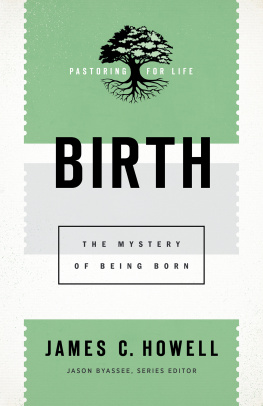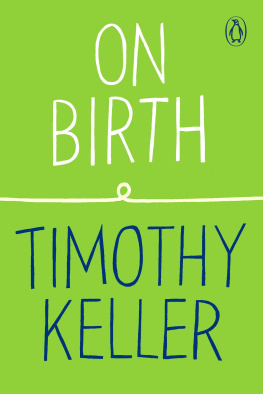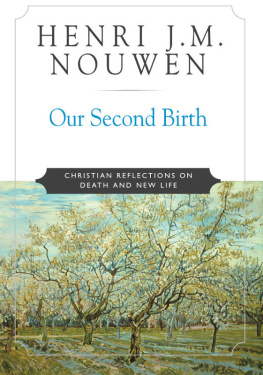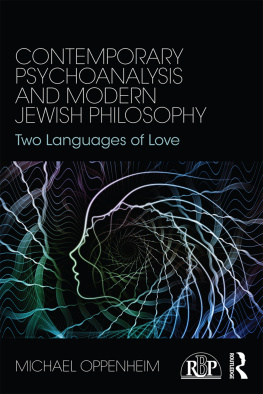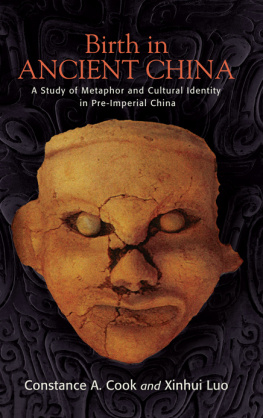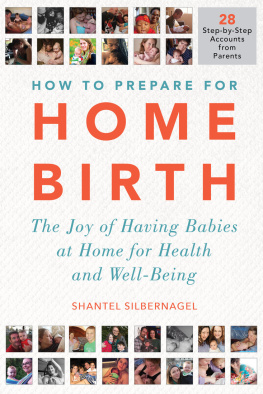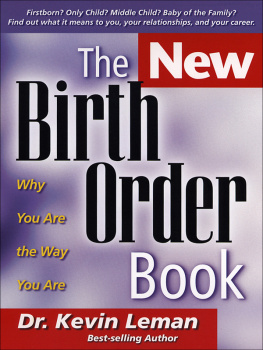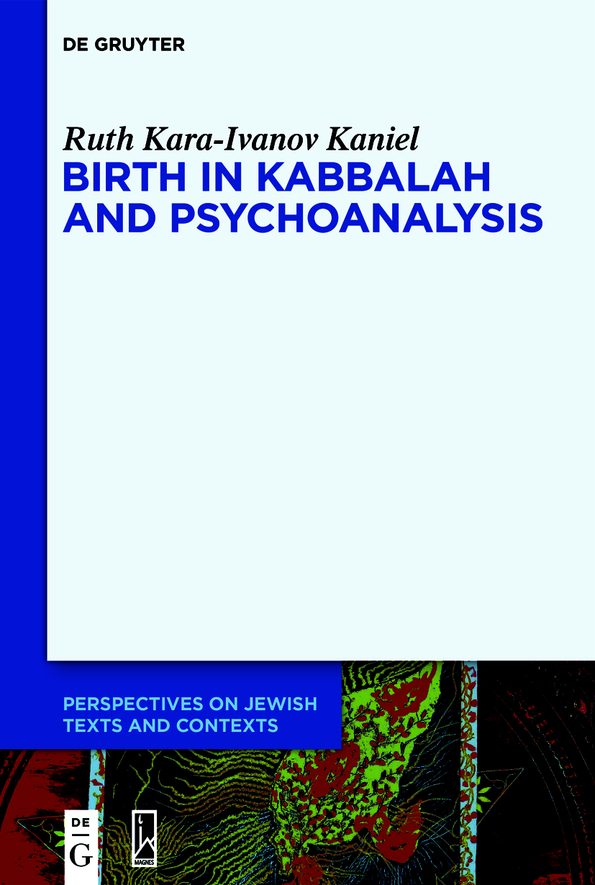Perspectives on Jewish Texts and Contexts
Edited by
Vivian Liska
Robert Alter
Steven A. Aschheim
Leora Batnitzky
Richard I. Cohen
Mark H. Gelber
Moshe Halbertal
Christine Hayes
Moshe Idel
Samuel Moyn
Ilana Pardes
Alvin Rosenfeld
David Ruderman
Bernd Witte
Volume
ISBN 9783110687491
e-ISBN (PDF) 9783110688023
e-ISBN (EPUB) 9783110688108
Bibliographic information published by the Deutsche Nationalbibliothek
The Deutsche Nationalbibliothek lists this publication in the Deutsche Nationalbibliografie; detailed bibliographic data are available on the Internet at http://dnb.dnb.de.
2022 Walter de Gruyter GmbH, Berlin/Boston and The Hebrew University Magnes Press, Jerusalem
Introduction
The human being is a born creature. Birth is a moment that has taken place and that continues to take place throughout our lives.
This book addresses the experience of birth, the ontological and existential fact shared by all humans our birth. Against the being-towards-death experience posed by existentialism as the central movement of life, I will attempt to examine the opposite existential pole, what I will call the approaching-birth experience or being born. I will suggest that central streams in Jewish philosophy, and in particular Kabbalistic and Hasidic literature, whose roots are early and linked to the Bible, midrash, and the literature of the ancient world, and which view birth as the focus of our existence, conceive of birth both as a moment in time and as a continuing experience of internal actuality, relative to which the intuitive experience of actual life is measured.
The book will be devoted to a discussion of the consciousness of life derived from the experience of birth and to an examination of birth itself. My working assumption is that the human being is a born creature who is aware of his birth. The fact of us having been born is the firmest of our known facts and is something that we think about and interpret all throughout our lives. This experience can be illuminated through a variety of tools. In the chapters that follow, I will address the existential meaning of birth and its analysis through a psychological and psychoanalytical lens and through the lens of Jewish myth in general, and Kabbalistic literature in particular, showing the similarities and differences between these perspectives along the way. In addition, I will relate the physiological and biological aspects of birth and the physical context in which it takes place, its gendered meaning, and the perception of the mother as a subject with the aim of illuminating the links between birth, sexuality, Eros, and motherhood. The mother is born when she gives birth, while the infant is not only born but also transforms she who was a woman into a mother. On the symbolic level, the mother and baby have the power to transform man into father, and, at the same time, all of these testify to divine power, which creates life and is revealed in the act of birth. Birth is a powerful rite of passage that is imprinted on the flesh and soul of all who experience it.
The weaving together of different points of view regarding birth into one whole will result in a mosaic-like composition that addresses the notion that man is a born creature. This kaleidoscope, if you will, includes both tightly and loosely structured chapters of study, analysis, and contemplation. This is because birth, alongside its reality, diverges into the realm of the infinite otherness, which is outside of all order cultural, linguistic, and symbolic. Birth is the excess, the place in which the human overflows, slopes downward from the borders of its being, and deviates from its finality. Birth is much more than the birth of an individual, as it is the most universal phenomenon we can imagine. On the other hand, there is no more private experience than this, for the birth of one person is unlike the birth of any other. Birth deviates even from language, and makes present the self in its connection to the other that emerges from it as they are two distinct entities which are nevertheless linked together in a sort of mysterious and paradoxical selfobject. I will examine birth as a continuous phenomenon and as a unique, one-time event as a symbolic event and as a uniquely female and motherly act.
Psychoanalysis and Kabbalah: The Meeting of Worlds
The profound questions addressed by Kabbalah and by psychoanalytic theory intersect at critical points. Those two bodies of knowledge are concerned with the human spirit in all its observed and hidden aspects. Even though the notion of spirit, soul, or psyche nefesh, in Biblical Hebrew, a term for life-force has changed over historical time, there are more than a few points of linkage between the concept of ones nefesh, ones non-physical self, in these two conceptual worlds. The proximity of these two fields is notable in the poetic realm, in mystical symbolism, in the effort to decipher the language of dreams, in the weight attributed to the erotic experience, and in the presence of sexuality in the theosophical system and interpersonal relations.
The healing and creative power of speech finds expression both in Kabbalah and in psychoanalysis, In the world of Kabbalah, the body constitutes an instrument of tikkun (repair, restoration) and the point of connection between the human and the Divine, which is similar to the world of therapy, in which the body constitutes a key to the psyche and its secrets.
These ideas echo Kabbalistic concepts of the divine origin of the soul, the stages of its descent into the world, and the shape of the soul and its parts. These connections deepen in Lurianic Kabbalah, which describes the structure of divinity in light of the secrets of impregnation and reincarnation. A full development of the theory of the soul appears in Hasidism, which suggests a transformational process in which Kabbalistic language is applied to a psychological rubric that focuses on the human being and the improvement of his character.
In medieval Kabbalah, the connection between the human and the divine is woven around the concepts of birth and creation as a foundation on which the first pattern of relationships is formed. The Zohar often refers to God as Adam (human), and body,
The Kabbalistic corpus, like the psychoanalytic one, grapples with the meaning of existence while opposing the rigid explanations offered by Jewish and Christian institutionalized religion. These two subversive compilations are products of creative European thought that reflected novel conceptions of the self, and imparted significance to relationships with the Other, both human and divine. Through its discussion of the Godhead and the conceptual structure of the sefirot, Kabbalah offered a new way of understanding the mysteries of the human soul, while psychoanalysis determined the subconscious to be the imperceptible driving force of human existence.
Despite these profound connections between the fields of Kabbalah and psychoanalysis, the founder of the research into Kabbalah, Gershom Scholem, wrote in his diary entry for 2 Though Scholem avoided any overt application of Freudian theory or other psychological concepts in his study of Jewish mysticism, his writings on the figure of Sabbatai Zvi, for example, display the thoughtful use of psychological concepts and a deep understanding of borderline personalities.
The picture has changed considerably since his time. Scholars of Kabbalah and psychoanalytic theoreticians, respectively, have explored partial connections between Kabbalistic theology and psychoanalytic and gender theories. Until now, however, no attempt has been made to develop an overarching scholarly methodology and conceptual system to connect Kabbalistic doctrine with psychoanalytic and gender theory. The study of religion remains separate from that of the human psyche a lacuna which this book aims humbly to fill.


